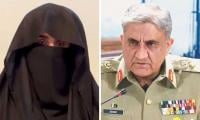ISLAMABAD: As many as 111 political parties have nominated 275 women candidates to contest the upcoming elections on general seats, making up for 4.6 percent of the total of 6,037 candidates they have fielded, reports Free and Fair Election Network (FAFEN).
According to Section 206 of the Elections Act, 2017 (Selection for Elective Offices), each political party is required to ensure at least five percent representation of women candidates while selecting candidates for general seats for elective offices, including membership of the Majlis-e-Shoora (Parliament) and provincial assemblies.
FAFEN analysis is based on the List of Contesting Candidates (form-33) for National and Provincial Assemblies from 111 political parties, of whom 30 have fielded five or more than five percent women on general seats, while four political parties have fielded between 4.50 and 4.99 percent of women candidates on general seats (that is statistically rounded-up to five percent), and the remaining 77 have fielded up to 4.50 percent women candidates on general seats.
The parties fielding less than 4.50 percent of women candidates on general seats is higher since the applicability of this provision is technically effective only on political parties which field at least 20 candidates on general seats (as the five percent provision requires them to allocate tickets to at least one woman candidate). Only 35 political parties have fielded more than 20 candidates for general seats.
According to FAFEN, the level of adherence to the five-percent provision varies across the elective houses. For the National Assembly, 94 parties have allocated tickets for general seats to a total of 1,872 candidates, including 92 women, making up 4.91 percent of women out of the total candidates fielded. For the Punjab Assembly, 70 parties have allocated tickets to a total of 1,878 candidates, including 58 women (3.09 percent of the total). For the Sindh Assembly, 50 parties have allocated tickets to a total of 948 candidates, out of which 59 are women (6.22 percent of the total). For the Balochistan Assembly, 37 parties have allocated tickets to a total of 533 candidates, out of which 19 are women (3.56 percent of the total). For the Khyber Pakhtunkhwa Assembly, 44 parties have allocated tickets to 806 candidates, out of which 47 are women (5.83 percent of the total).
According to the report, Pakistan People’s Party Parliamentarians overall candidates are 777 out which 742 are male, 35 female candidates with the corresponding percentage of women candidates for the General Elections 2024 is 4.50 percent. Pakistan Muslim League (N) overall candidates are 667 out which 635 are male and 32 female candidates and overall women candidates percentage is 4.80 percent.
Jamaat-e-Islami has 756 candidates out of which 728 are male and 28 female and the overall women candidates percentage is 3.70 percent.
Jamiat Ulema-e-Islam Pakistan has 456 candidates out of which 437 are male and 19 are women candidates and their overall percentage is 4.17 percent.
In the case of Awami National Party’s overall candidates are 202 out of which 194 are male and 8 are female candidates, while the overall percentage of women candidates is 3.96 percent.
Muttahida Qaumi Movement Pakistan has 191 candidates out of which 180 are male and 11 are female candidates while its overall women candidates percentage is 5.76 percent.
The Istehkam-e-Pakistan Party has 98 candidates out of which 91 are male and 7 are female candidates and overall women candidates percentage is 7.14 percent. The Grand Democratic Alliance (GDA) has a total of 107 candidates out of which 91 are male and 16 are female candidates and its overall percentage of women candidates is 14.95 percent.
In case of Pakistan Muslim League (Q) it has fielded overall 62 candidates out of which 59 are male and 3 are female and its overall percentage of women candidates is 4.84 percent.
Meanwhile, the FAFEN has called upon all election stakeholders to make collective efforts to ensure that the voters can freely cast their ballots on February 8, 2024 and subsequent processes of counting, tabulation and consolidation are conducted in an entirely transparent manner by the provisions of the Elections Act, 2017.
Given the criticality of the upcoming elections, FAFEN has asked the ECP to ensure that the Presiding Officers are providing candidates, their agents, and observers copies of Form-45 and Form-46, Form-47, Form-48, and Form-49. It also asked the ECP to ensure that accredited media persons are given access to polling stations and Returning Officers to report on the tabulation and consolidation of results.
The ECP must ensure the publication of the provisional results on its website by 02:00 a.m. on the day immediately following the polling day, as well as the provisional results completed by 10:00 a.m. It must ensure that gender-disaggregated turnout is recorded on all Form-45 by the Presiding Officers. It must publish all Form-45 (Result of the Count), Form-46 (Ballot Paper Account), Form-48 (Consolidated Statement of the Results of the Count furnished by the Presiding Officers) and Form-49 (Final Consolidated Result) on its website as early as possible.
Pak Army and Gilgit-Baltistan government request federal government to provide 100pc local wheat
More than $20bn in market value has been wiped off Adani’s corporate empire, says Financial Times
Fund asked government to increase sales tax on POL products to 18 percent instead of 1-2 percent.
Air chief’s visit underscores importance of technological collaboration in strengthening national defence capabilities
Under Article 154 of the Constitution, it is mandatory to hold a CCI meeting every 90 days, says Sindh CM
Chairing meeting on Thursday, CM directs construction of 5,000 new classrooms under PSRP Programme







